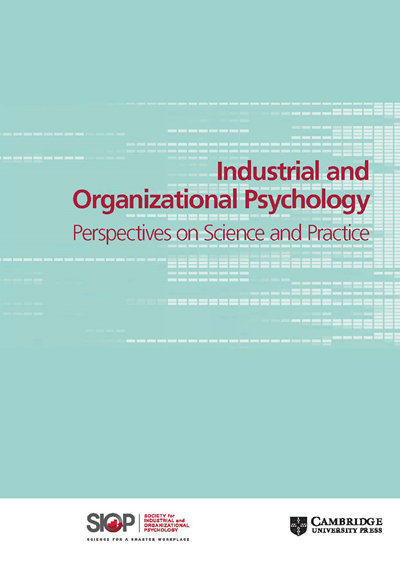Planned missingness: An underused but practical approach to reducing survey and test length
IF 4.3
3区 心理学
Q1 PSYCHOLOGY, APPLIED
Industrial and Organizational Psychology-Perspectives on Science and Practice
Pub Date : 2023-03-01
DOI:10.1017/iop.2022.113
引用次数: 0
Abstract
Abstract I-O psychologists often face the need to reduce the length of a data collection effort due to logistical constraints or data quality concerns. Standard practice in the field has been either to drop some measures from the planned data collection or to use short forms of instruments rather than full measures. Dropping measures is unappealing given the loss of potential information, and short forms often do not exist and have to be developed, which can be a time-consuming and expensive process. We advocate for an alternative approach to reduce the length of a survey or a test, namely to implement a planned missingness (PM) design in which each participant completes a random subset of items. We begin with a short introduction of PM designs, then summarize recent empirical findings that directly compare PM and short form approaches and suggest that they perform equivalently across a large number of conditions. We surveyed a sample of researchers and practitioners to investigate why PM has not been commonly used in I-O work and found that the underusage stems primarily from a lack of knowledge and understanding. Therefore, we provide a simple walkthrough of the implementation of PM designs and analysis of data with PM, as well as point to various resources and statistical software that are equipped for its use. Last, we prescribe a set of four conditions that would characterize a good opportunity to implement a PM design.计划失踪:减少调查和测试长度的一种未充分利用但实用的方法
摘要由于后勤限制或数据质量问题,I-O心理学家经常需要缩短数据收集工作的时间。该领域的标准做法是,要么从计划的数据收集中删除一些措施,要么使用简短形式的工具,而不是完整的措施。考虑到潜在信息的损失,放弃措施是没有吸引力的,而且简短的表格往往不存在,必须制定,这可能是一个耗时且昂贵的过程。我们主张采用另一种方法来缩短调查或测试的长度,即实施计划缺失(PM)设计,每个参与者完成一个随机的项目子集。我们首先简要介绍了PM设计,然后总结了最近的经验发现,这些发现直接比较了PM和简短的方法,并表明它们在大量条件下表现相当。我们调查了一个研究人员和从业者的样本,以调查为什么PM在I-O工作中没有被普遍使用,并发现使用不足主要源于缺乏知识和理解。因此,我们提供了PM设计的实施和PM数据分析的简单演练,并指出了为其使用而配备的各种资源和统计软件。最后,我们规定了一组四个条件,这些条件将描述实施PM设计的良好机会。
本文章由计算机程序翻译,如有差异,请以英文原文为准。
求助全文
约1分钟内获得全文
求助全文
来源期刊

Industrial and Organizational Psychology-Perspectives on Science and Practice
PSYCHOLOGY, APPLIED-
CiteScore
7.70
自引率
10.10%
发文量
85
期刊介绍:
Industrial and Organizational Psychology-Perspectives on Science and Practice is a peer-reviewed academic journal published on behalf of the Society for Industrial and Organizational Psychology. The journal focuses on interactive exchanges on topics of importance to the science and practice of the field. It features articles that present new ideas or different takes on existing ideas, stimulating dialogue about important issues in the field. Additionally, the journal is indexed and abstracted in Clarivate Analytics SSCI, Clarivate Analytics Web of Science, European Reference Index for the Humanities and Social Sciences (ERIH PLUS), ProQuest, PsycINFO, and Scopus.
 求助内容:
求助内容: 应助结果提醒方式:
应助结果提醒方式:


